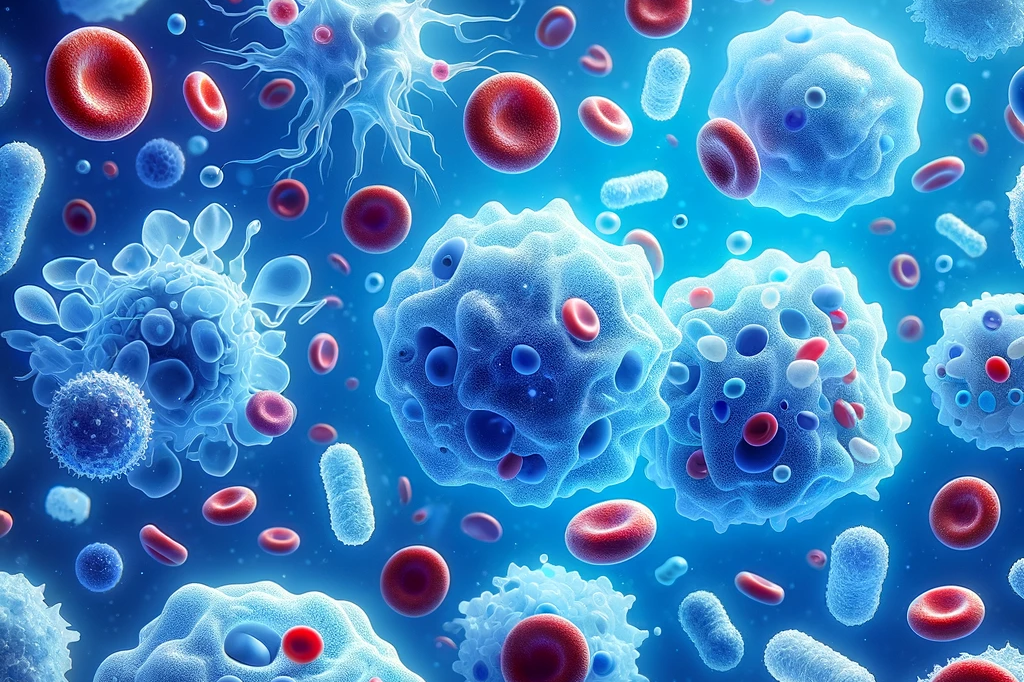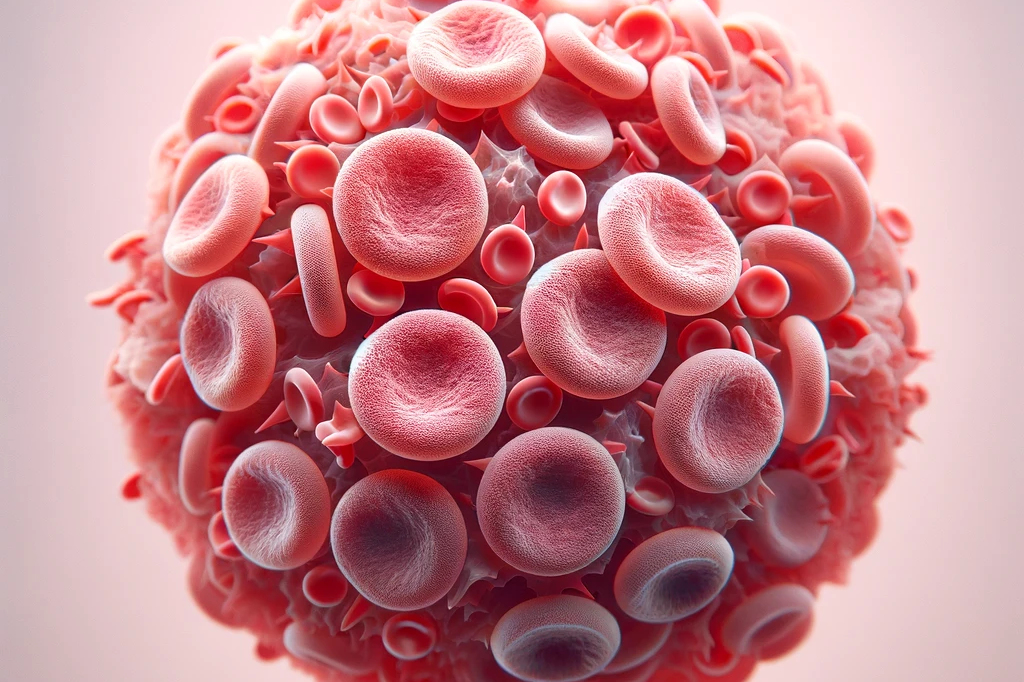Eicosanoids

The most important eicosanoids are prostaglandins, thromboxanes, leukotrienes and lipoxins. They are divided into different series according to their chemical structure: Series 1 and 3 are anti-inflammatory, series 2 and 4 are pro-inflammatory.
How do eicosanoids get into dog food?
Eicosanoids are not added directly to dog food, but are formed from the fatty acids contained in the food. The most important fatty acids for the formation of eicosanoids are omega-3 and omega-6 fatty acids. These are essential fatty acids, i.e. dogs cannot produce them themselves and must ingest them with their food.
Omega-3 fatty acids are mainly found in fish oil, linseed oil and algae oil. They are the precursors of the anti-inflammatory eicosanoids of series 3. Omega-6 fatty acids are mainly found in vegetable oils such as sunflower oil, corn oil or safflower oil. They are the precursors of the pro-inflammatory eicosanoids of series 2 and 4.
What are the benefits of eicosanoids for dogs?
Eicosanoids are not fundamentally bad for dogs. They also have important functions in the body and can be helpful in certain diseases or situations. For example, they can
- promote wound healing
- regulate blood clotting
- strengthen the immune system
- improve fertility
- facilitate childbirth
- regulate the body temperature
What are the disadvantages of eicosanoids for dogs?
Eicosanoids can also have negative effects on dogs, especially if they get out of balance. This can happen if the dog food contains too many omega-6 fatty acids and too few omega-3 fatty acids. Too many pro-inflammatory eicosanoids and too few anti-inflammatory eicosanoids are then formed. This can lead to chronic inflammation, which in turn can promote or aggravate many diseases. For example, they can
- Trigger or worsen allergies
- cause or aggravate skin problems
- Cause or exacerbate joint problems
- Cause or exacerbate cardiovascular problems
- Promote or accelerate cancer
How can you improve your dog's eicosanoid balance?
To improve your dog's eicosanoid balance, you should make sure that the dog food has a good ratio of omega-3 to omega-6 fatty acids. The ideal ratio is between 1:1 and 1:5. You can read the ratio on the label of the food or ask the manufacturer.
If the ratio is too unfavorable, you can try changing the food or feeding a high-quality omega-3 supplement.
If you notice any signs of hypersensitivity or poisoning in your dog, you should see your vet immediately. We are not a substitute for a vet, but we try to be as accurate as possible. Every dog reacts differently and we recommend you get a second opinion or consult your vet if in doubt.
Stay healthy and take good care of your four-legged friend!😊
Similar to Eicosanoids
Prostaglandins are a group of physiologically active lipid compounds that are synthesized from fatty acids. They act as local hormones and have multiple functions in the body, including promoting...
Thromboxane A2 is a substance produced by blood platelets and plays a key role in blood clotting and the regulation of blood vessels. It promotes the clumping of platelets (platelet aggregation) and...
Leukotrienes are a group of inflammatory mediators that are produced in white blood cells or leukocytes. They are involved in various inflammatory and allergic processes and can trigger similar...
Prostacyclins, scientifically known as prostaglandin I2 (PGI2), are part of the eicosanoid family, a group of compounds synthesized from arachidonic acid. They play a central role in a variety of...



